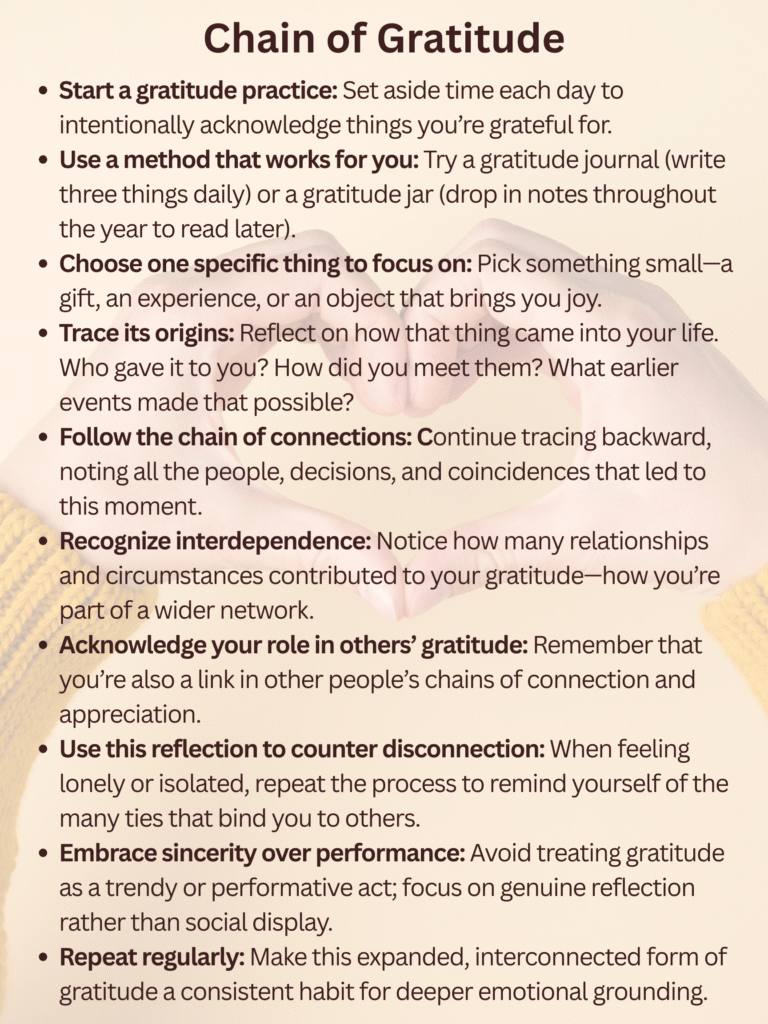“Good morning. The good things in our lives are the result of fantastic webs of interconnected prerequisites.” This according to a recent piece by Melissa Kirsch, longtime contributor at the New York Times.
Melissa recently reflected on the modern concept of gratitude practices, like gratitude journals or jars, which encourage people to intentionally acknowledge the good in their lives—a habit shown to benefit mental, relational, and even physical health. Despite feeling uneasy about the commercialization and cliché surrounding “attitude of gratitude” culture, she described a personal practice that deepens this idea: tracing each moment of gratitude backward through the web of connections and events that made it possible. This reflective process transforms simple appreciation into a profound recognition of interdependence, echoing ideas from Buddhism, Judaism, and Martin Luther King Jr.’s notion of a “network of mutuality.” Ultimately, the practice reveals how every person and event is part of a vast chain of causes, reminding us that gratitude can reconnect us to others and counter feelings of isolation.
Ready to start? Below is the step-by-step, and the full article is available at https://www.nytimes.com/2025/10/25/briefing/personal-history.html

- Start a gratitude practice: Set aside time each day to intentionally acknowledge things you’re grateful for.
- Use a method that works for you: Try a gratitude journal (write three things daily) or a gratitude jar (drop in notes throughout the year to read later).
- Choose one specific thing to focus on: Pick something small—a gift, an experience, or an object that brings you joy.
- Trace its origins: Reflect on how that thing came into your life. Who gave it to you? How did you meet them? What earlier events made that possible?
- Follow the chain of connections: Continue tracing backward, noting all the people, decisions, and coincidences that led to this moment.
- Recognize interdependence: Notice how many relationships and circumstances contributed to your gratitude—how you’re part of a wider network.
- Acknowledge your role in others’ gratitude: Remember that you’re also a link in other people’s chains of connection and appreciation.
- Use this reflection to counter disconnection: When feeling lonely or isolated, repeat the process to remind yourself of the many ties that bind you to others.
- Embrace sincerity over performance: Avoid treating gratitude as a trendy or performative act; focus on genuine reflection rather than social display.
- Repeat regularly: Make this expanded, interconnected form of gratitude a consistent habit for deeper emotional grounding.
